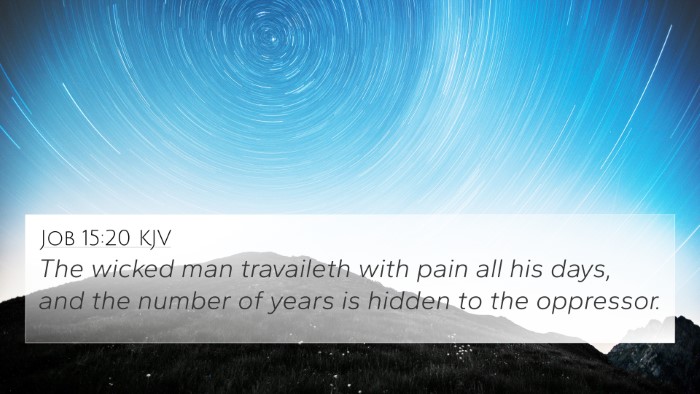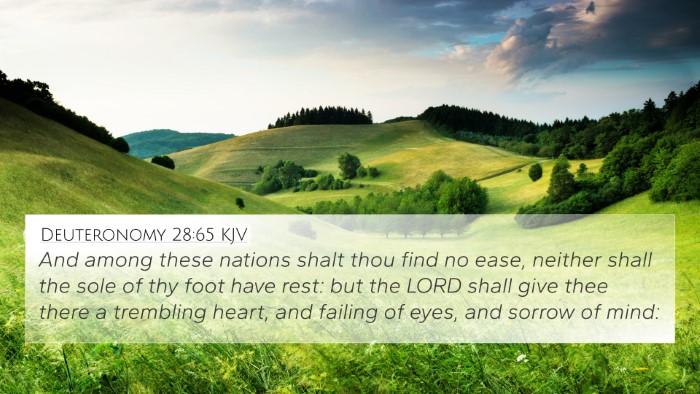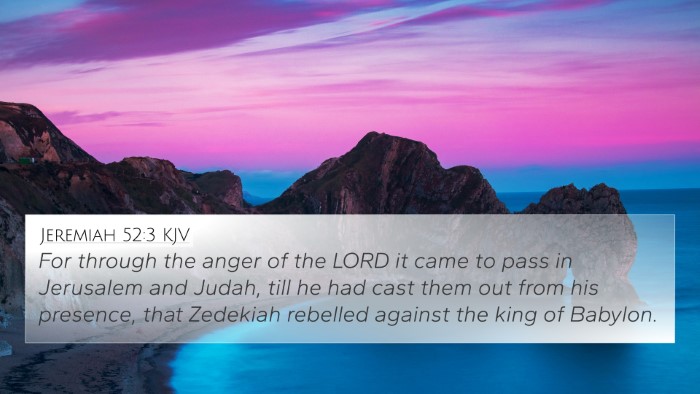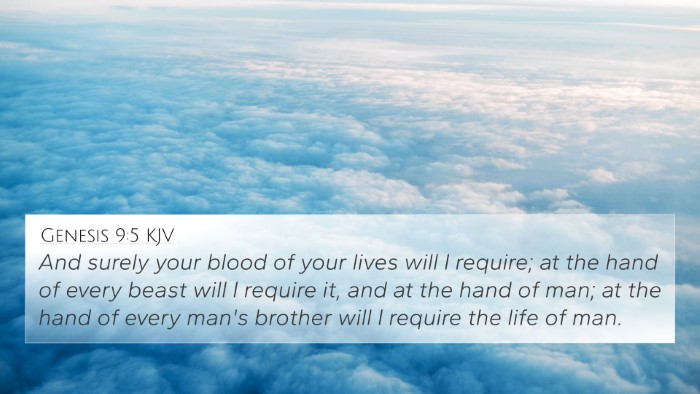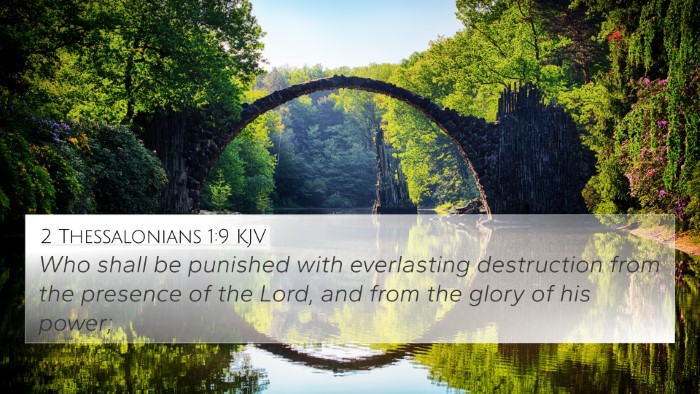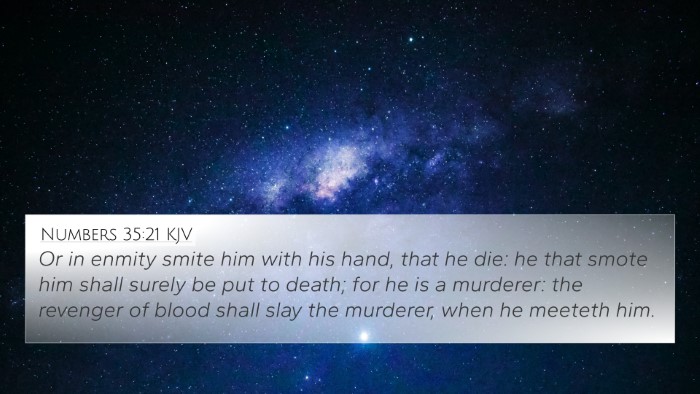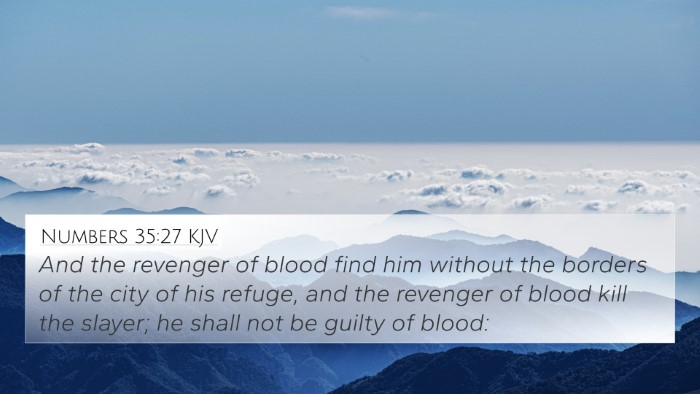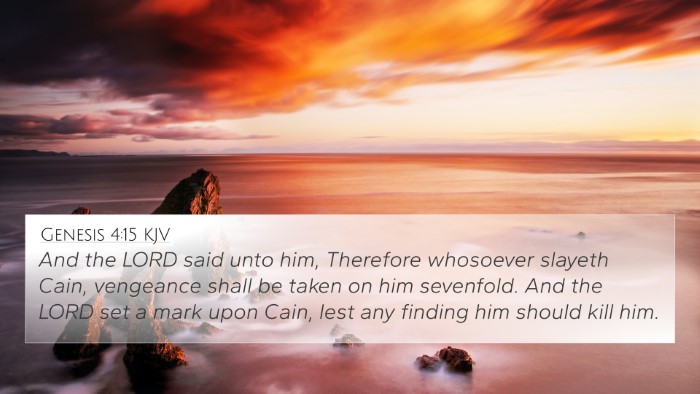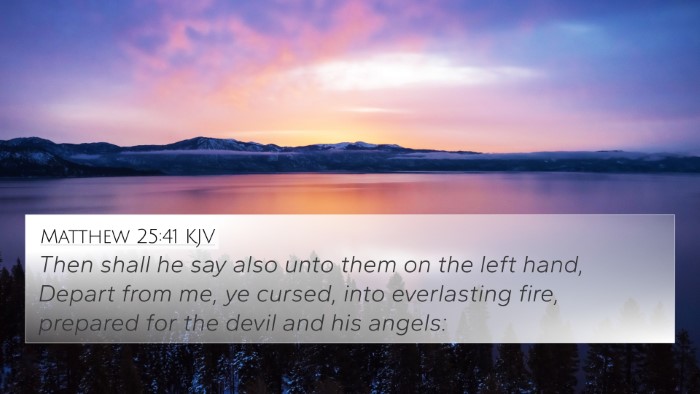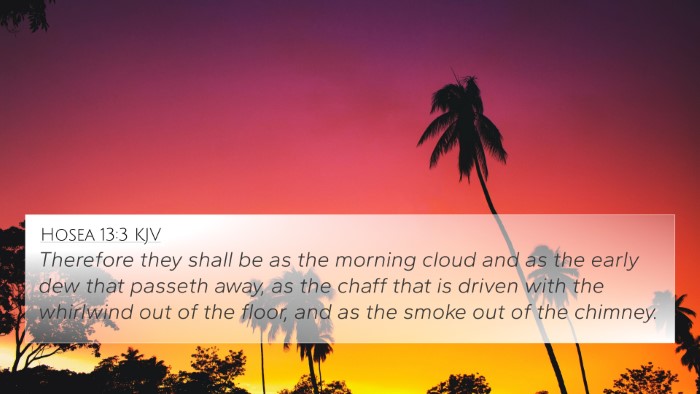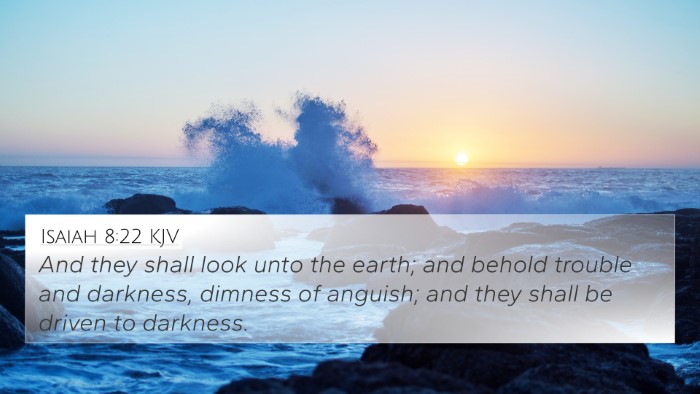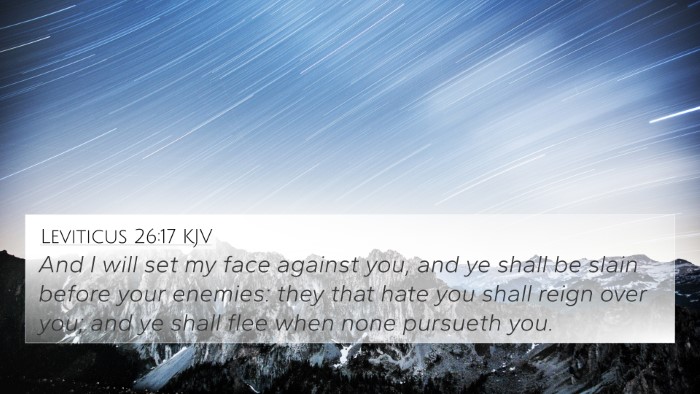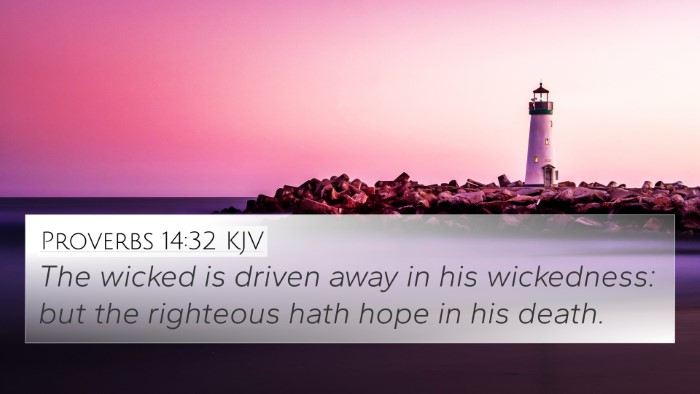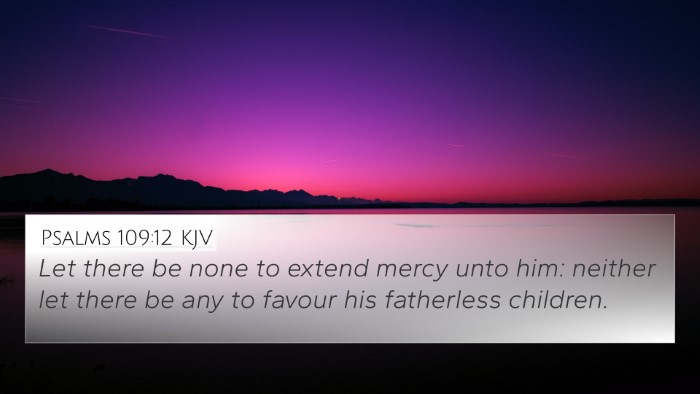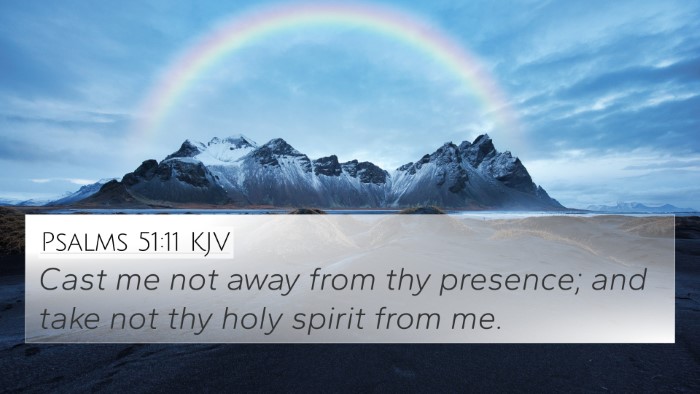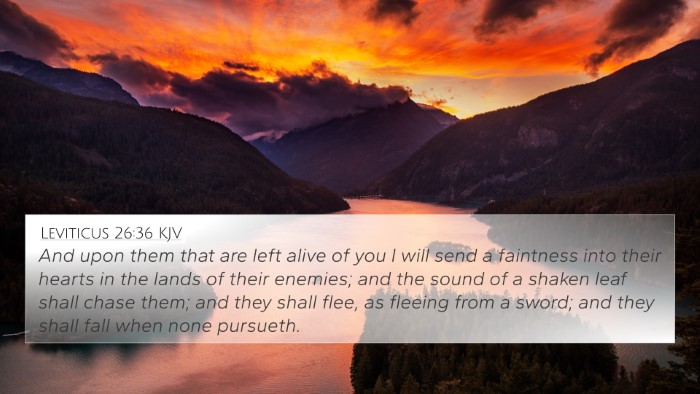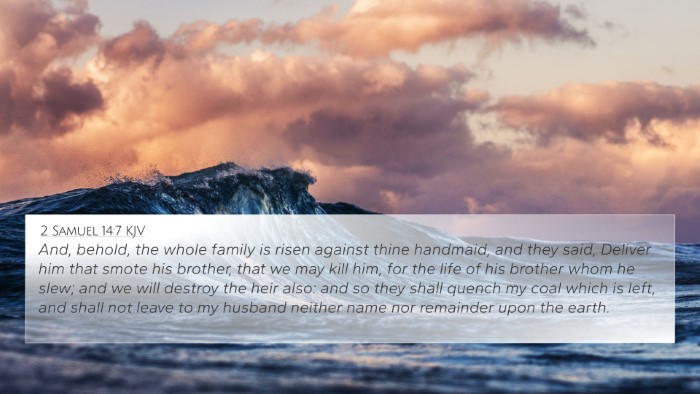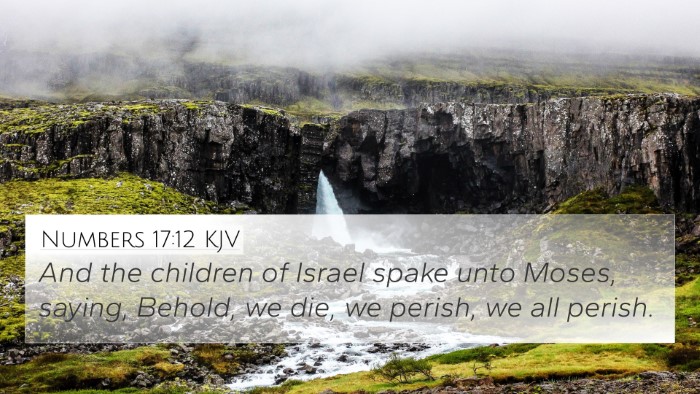Understanding Genesis 4:14
Genesis 4:14 states, "Behold, you have driven me out this day from the face of the ground; and from your face shall I be hid; and I shall be a fugitive and a vagabond in the earth; and it shall come to pass, that everyone that finds me shall slay me." This verse follows the account of Cain after he has killed Abel. Cain expresses his fears and the consequences of his actions.
Context of Genesis 4:14
To fully understand this verse, it is essential to consider the events that led to Cain’s lament. Cain, the firstborn son of Adam and Eve, committed the first murder by killing his brother Abel out of jealousy. After God's judgment upon him, Cain reacts with despair regarding his future and isolation. This is marked by various layers of meaning that can be explored through various commentaries.
Commentary Insights
This interpretation blends insights from resilient public domain commentaries:
Matthew Henry's Commentary
Henry emphasizes Cain's sense of loss and fear. He notes that Cain is not only aware of his sin but also the real and terrifying consequences that follow. Henry points out that Cain feels the weight of divine judgment, feeling driven away from God's presence and community. This separation reflects a spiritual exile that highlights the themes of alienation from God and society.
Albert Barnes' Notes on the Bible
Barnes notes that Cain's statement indicates a deep awareness of divine retribution. His fear is not just about being physically removed, but additionally about being vulnerable. Cain's self-identification as a "fugitive" and "vagabond" underscores the profound psychological impact of guilt and fear on his identity.
Adam Clarke's Commentary
Clarke adds that Cain feared the consequences of his actions would lead to his death at the hands of others. His concern illustrates an important biblical theme regarding the cycle of violence and retribution. Clarke emphasizes that Cain's fear of being killed shows he recognizes the potential for revenge by others as a societal consequence of his sin.
Thematic Connections with Other Bible Verses
Genesis 4:14 has significant thematic links with other Bible verses, enriching our understanding of human sin and its consequences. Here are some related verses:
- Genesis 3:23-24 - Adam and Eve's expulsion from the Garden of Eden, illustrating the theme of alienation from God.
- Exodus 21:12-14 - The laws regarding murder and the consequences for taking a life, reflecting the seriousness of Cain's actions.
- Hebrews 11:4 - This passage speaks of Abel’s righteousness, contrasting with Cain’s wickedness.
- 1 John 3:12 - A commentary on Cain's actions and their implications for how we should conduct ourselves as people of faith.
- Romans 6:23 - The consequence of sin being death, echoing Cain's fear of his fate.
- Matthew 5:21-22 - Jesus' teachings on murder and the anger that leads to it, linking Cain's story to a broader moral framework.
- Numbers 35:30-34 - The sanctity of life and the provision of refuge cities for those who commit unintentional manslaughter, illustrating the concept of justice.
Application in Biblical Studies
Studying Genesis 4:14 through cross-references allows believers to see the broader implications of human frailty and the persistent themes of sin and redemption presented throughout the Bible. Here are some tools and methods for further exploration:
- Tools for Bible Cross-Referencing: Utilize Bible concordances and cross-reference guides to discover themes and parallel scriptures.
- Bible Cross-Reference Guide: Compile scripture that discusses similar themes of isolation, judgment, and redemption.
- Cross-Reference Bible Study: Engage with groups to discuss the interconnections between verses and how they relate to modern issues of morality and ethics.
- Comprehensive Bible Cross-Reference Materials: Develop a resource library of thematic connections that point to the overarching narrative of God's redemption.
Conclusion
The emotional and spiritual implications of Genesis 4:14 highlight Cain's sorrow and fear following his grievous sin. By examining this verse through commentaries and cross-referencing it with other scriptures, we gain a fuller understanding of the human condition and God’s justice. This verse serves as a poignant reminder of the weight of sin and the hope of God's mercy for those who seek it.
Through studying cross-references related to Genesis 4:14, one can find connections across the Old and New Testament that illustrate the consistent message of sin, consequences, and redemption that permeates the entirety of scripture.




